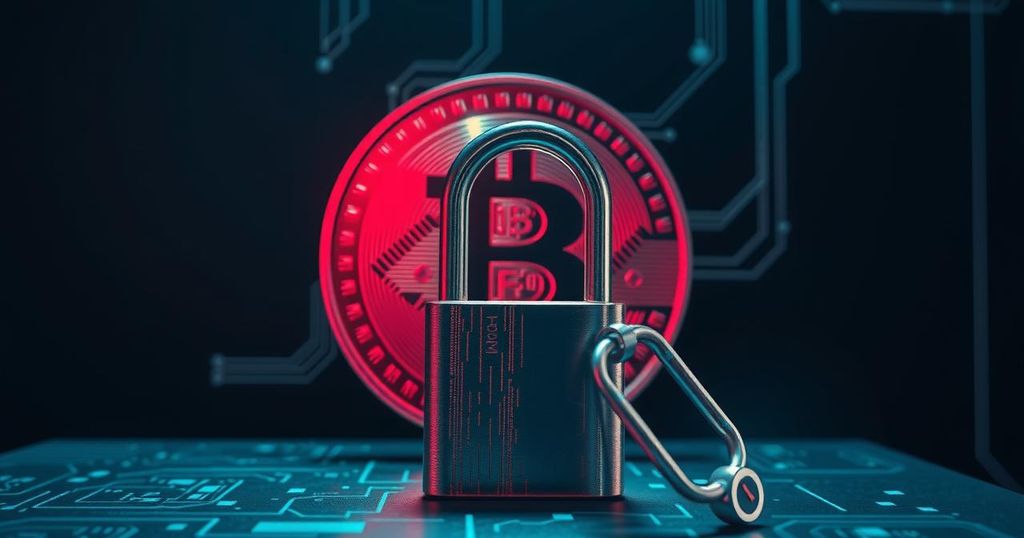North Korean Hackers Execute Record $1.5 Billion Cryptocurrency Theft
North Korean hackers have stolen $1.5 billion in cryptocurrency from the Bybit exchange, marking a new record in crypto heists. The incident is a challenge for U.S. policy regarding North Korea’s funding of nuclear programs through cybercrime. Experts are working to recover stolen funds while debating the efficacy of current deterrence strategies.
North Korean hackers have executed a record-breaking cryptocurrency heist, stealing $1.5 billion from Bybit, the world’s second-largest cryptocurrency exchange. The breach, which occurred within minutes, represented a staggering portion of North Korea’s estimated annual GDP. In quick succession, hackers began laundering about $160 million of the stolen funds, illustrating their continued ability to facilitate such significant financial crimes, as stated by TRM Labs, a crypto-tracing firm.
This incident marks a considerable challenge for U.S. policy makers under the Trump administration, as officials seek to thwart North Korea’s funding of its nuclear ambitions through cybercrime. “We have never seen anything on this scale before. The ability of these illicit financial networks to absorb such huge amounts of money so quickly is deeply concerning,” commented Nick Carlsen, a former FBI analyst currently with TRM Labs.
North Korea’s hacking initiatives have generated billions in stolen assets from banks and cryptocurrency exchanges. Reports indicate that approximately half of North Korea’s missile program has been financed through these digital thefts, according to a White House official from 2023. Bybit’s CEO reassured users of the exchange’s solvency and confirmed that it is capable of compensating for the loss incurred during the hack.
Efforts to recover the stolen assets are ongoing, as U.S. and South Korean law enforcement monitor the laundering processes. These experts often have mere minutes to act to reclaim stolen funds. Previous operations indicate some success, with investigation teams recovering approximately $43 million of the stolen sum thus far. Bybit has pledged to distribute 10% of any recovered amounts to those assisting in the retrieval efforts.
Carlsen urged that a reassessment of current strategies is essential, emphasizing, “The current strategy from governments and industry clearly isn’t working. People should be going back through drawing board right now on how to deter and punish North Korea for these hacks.” The need for a robust plan to combat such cyber threats has never been more apparent.
In summary, the North Korean hackers’ theft of $1.5 billion marks the largest cryptocurrency hack in history, highlighting serious concerns surrounding international cybersecurity and the implications for global finance. With ongoing laundering efforts and attempts to recover stolen funds, law enforcement agencies are under pressure to develop more effective strategies to thwart North Korea’s cyber operations. The necessity for collaborative international efforts to address these cyber threats is critical.
Original Source: www.cnn.com




Post Comment